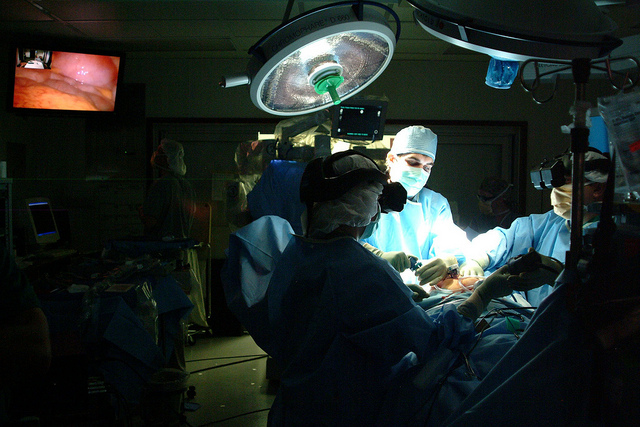If your health has deteriorated in any way or you’ve broken or damaged a limb playing sport, then you may well have to go to a hospital. This can be a rather daunting and scary experience for most. So it is important to know what to expect.
Consultation
Before anything gets under way you’re likely to be called in for a consultation meeting to discuss what is going to happen to your body. This is where doctors will outline the risks of the procedure, as well as any other side effects or possible mishaps. You will then speak to the surgeon and ultimately give your permission to undergo the procedure. Then you may also learn about any tests you may need prior to the operation and how you might go about preparing for these. Each procedure is unique in this sense.
Tests
Before any operation can begin, you body will be thoroughly tested. These can range from anything from a blood type test to an MRI scan or even an ultrasound. Surgeons need to be certain of your blood type in case a transfusion needs to be made during the procedure. You may also be asked to give a urine sample. This is normal. Once the results have been calculated and analysed, doctors will feedback to you and surgery can then be arranged.
Hospital Gown
When you arrive for your surgery at the hospital, you will be handed one of these. You are required to change into a hospital gown to make things easier for surgeons. Clothing and jewelry should be taken off, so as not to interfere during the operation. It is also important that you don’t wear any makeup on the day of your operation. You should also consider wearing glasses as opposed to contact lenses if your eyesight is poor. This is because glasses are much easier for surgeons to remove if required.
Anesthetic
Before the knives come out, you will be given general anesthesia to prevent your body from feeling pain. It does this by numbing the area of your body that is to be operated on. Once that has been carried out, a breathing tube is placed in your windpipe to help you breathe during the operation.
Procedure
Often, a surgeon will begin the operation by removing any obstructing head or body hair with surgical clippers. An incision is then made into your body so that surgeons can access whatever internals are being operated on. At this point, you will feel no pain thanks to the anesthetic. Surgical procedures can last from anything from a few hours to over a full day, depending on how serious the matter is. But, rest assured, you’re in good hands.
Recovery
Once the operation is over, you’ll feel very drowsy and exhausted. This is normal. These feelings may be increased if your surgery has been lengthy. Once you’re home, it’s important to move around a lot and stay active. This is because your blood needs to flow normally again for cut and wounds to heal. Your doctor will also most likely issue you with a guide to getting active again in order to recover from your operation fully.
During the recovery period, if you feel any side effects or latent injury, that might be a case of negligence on the hospital’s end. This can cause a lot of grievance and trauma, and you should get in touch with a medical malpractice lawyer Atlanta (or one closer to you) to seek a path forward. This is, however, a minuscule possibility, and in most cases your recovery should go well.
Hopefully, this post has alleviated any fears you may have had about having surgery for the first time. Now that you know what to expect, hopefully, the whole ordeal will seem less daunting for you. Good luck and all the best with your operation.
 Online Health Tips Health Blog
Online Health Tips Health Blog
